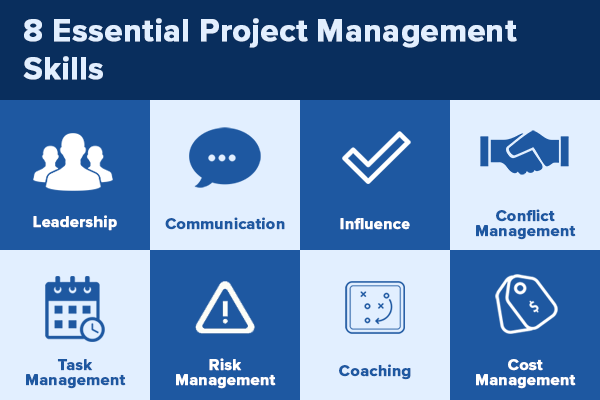
Every business should consider waste management. It is a legal responsibility for businesses to dispose of their waste. It is vital for businesses that they recycle. However, every year, there is still a lot to be recycled. Businesses should also take responsibility for their by-products. Businesses will be able to reduce waste by enforcing current laws and regulations. Businesses can develop policies to guide their actions in order to achieve this goal.
Environmental impact
Businesses can have both positive and negative effects on the environment by properly managing their waste. Garbage that isn't properly disposed can cause contamination of water and surfaces. This can be dangerous for humans, animals, and plants. It also pollutes air, which can lead to respiratory problems and other health issues. To combat these issues, businesses should ensure that they are using environmentally-friendly methods of waste management.
For waste management businesses, it is important to be more conscious of environmental issues. Whether a business is small or large, it is crucial to comply with environmental regulations. This will help improve the company's image and reputation. It will also bring you recognition from environmental organizations. In order to make a difference in the environment, it is worth investing in recycling equipment.
Prices
Waste management costs in businesses often include containers, fuel, transportation vehicles, labor and taxes. Recycling can be costly. While this is not free, it does save money and is often an essential part of waste management. Many cities have recycling programs and these programs reduce the amount of waste that is sent to landfills.

Recyclable waste is often much cheaper than traditional landfill fees, and over 60% of rubbish can be recycled. Non-compliance with waste disposal regulations in the UK can lead to fines and even imprisonment.
Problems
Poor waste management leads to climate change, pollution, and degradation of many ecosystems. Landfills, the last resort for dumping waste, release methane, a powerful greenhouse gas linked to climate change. They also contaminate soil and water. In certain instances, a business might be responsible to creating more waste then it can handle.
Poor waste management increases the chances of disease outbreaks and creates risks for health. Solid waste that has not been properly managed can cause severe skin irritations and even serious respiratory problems. It can also contaminate surface water and cause foodborne illness. Landfills that have not been properly maintained can pose a threat to the community's health as toxic chemicals could leach into the water, causing health problems.
Solutions
Business waste management is vital as it helps keep the workplace cleaner and safer. This is especially important for those in the hospitality and food industries. A solid waste management plan will help reduce potential fines as well as liability. This plan can help you build customer relationships and brand image. Streamlining waste management processes can help you stay ahead of the competition.
Your waste management can be simplified by measuring it and identifying what percentage you generate. You might want to invest in a large vertical binder if your company produces a lot of cardboard waste. This will reduce the volume and make the waste easier to recycle.

Partnering with waste management companies
For your waste management business, it can be a good idea to partner with a company that specializes in waste management. It is important to find companies that are flexible and can meet your needs. Hiring a waste disposal firm is an expensive investment. It is essential to make sure you choose one that is worthwhile.
You should choose a waste management company that puts your interests first. They should be able provide estimates and schedule collection at the frequency you prefer. They should be easy to reach and have a strong customer-centric attitude.
FAQ
What are management concepts, you ask?
Management concepts are the fundamental principles and practices that managers use when managing people and their resources. These include topics such as human resource policies and job descriptions, performance assessments, training programs and employee motivation.
What are the key management skills?
Any business owner needs to be able to manage people, finances, resources and time. They are the ability to manage people and finances, space, money, and other factors.
You will need management skills to set goals and objectives, plan strategies, motivate employees, resolve problems, create policies and procedures, and manage change.
As you can see there is no end to the number of managerial tasks.
What does Six Sigma mean?
Six Sigma uses statistical analysis to find problems, measure them, analyze root causes, correct problems, and learn from experience.
The first step is to identify the problem.
The next step is to collect data and analyze it in order to identify trends or patterns.
Next, corrective steps are taken to fix the problem.
Finally, data will be reanalyzed to determine if there is an issue.
This cycle will continue until the problem is solved.
Statistics
- Hire the top business lawyers and save up to 60% on legal fees (upcounsel.com)
- The profession is expected to grow 7% by 2028, a bit faster than the national average. (wgu.edu)
- The BLS says that financial services jobs like banking are expected to grow 4% by 2030, about as fast as the national average. (wgu.edu)
- Your choice in Step 5 may very likely be the same or similar to the alternative you placed at the top of your list at the end of Step 4. (umassd.edu)
- As of 2020, personal bankers or tellers make an average of $32,620 per year, according to the BLS. (wgu.edu)
External Links
How To
How can you implement Quality Management Plan (QMP).
QMP (Quality Management Plan), introduced in ISO 9001,2008, provides a systematic method for improving processes, products, or services through continuous improvement. It is about how to continually measure, analyze, control, improve, and maintain customer satisfaction.
QMP is a common method to ensure business performance. QMP improves production, service delivery, as well as customer relations. QMPs should encompass all three components - Products and Services, as well as Processes. If the QMP focuses on one aspect, it is called "Process." QMP. If the QMP is focused on a product/service, it's called a QMP. QMP stands for Customer Relationships.
Scope is the most important element in implementing a QMP. Strategy is the second. These elements are as follows:
Scope is what the QMP covers and how long it will last. This scope can be used to determine activities for the first six-months of implementation of a QMP in your company.
Strategy: This describes the steps taken to achieve the goals set out in the scope.
A typical QMP is composed of five phases: Planning Design, Development, Implementation and Maintenance. Each phase is explained below:
Planning: In this stage, the objectives of the QMP are identified and prioritized. In order to fully understand and meet the needs of all stakeholders involved in this project, they are consulted. Next, you will need to identify the objectives and priorities. The strategy for achieving them is developed.
Design: The design stage involves the development of vision, mission strategies, tactics, and strategies that will allow for successful implementation. These strategies are executed by creating detailed plans.
Development: This is where the development team works to build the capabilities and resources necessary for the successful implementation of the QMP.
Implementation: This is the actual implementation and use of the QMP's planned strategies.
Maintenance: This is an ongoing process to maintain the QMP over time.
The QMP must also include several other items:
Stakeholder Involvement: Stakeholders are important for the success of the QMP. They need to be actively involved in the planning, design, development, implementation, and maintenance stages of the QMP.
Project Initiation: The initiation of any project requires a clear understanding of the problem statement and the solution. Also, the initiator should understand why they are doing it and what they expect.
Time frame: The QMP's timeframe is critical. For a short time, you can start with the simple version of the QMP. If you're looking to implement the QMP over a longer period of time, you may need more detailed versions.
Cost Estimation - Cost estimation is an important part of the QMP. Planning is not possible without knowing the amount of money you will spend. Before you start the QMP, it is important to estimate your costs.
The most important thing about a QMP is that it is not just a document but also a living document. It changes with the company. It should therefore be reviewed frequently to ensure that the organization's needs are met.